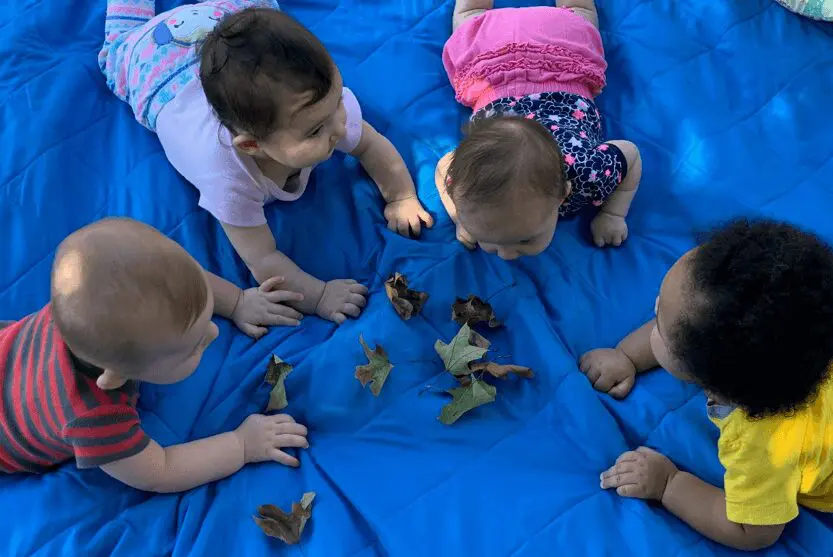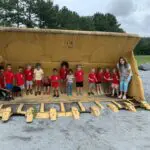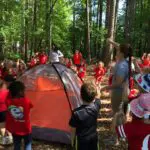In this modern age of technology, many people remain unaware of how important it is for children to play outdoors and spend some time interacting with nature. Besides the benefits of getting some fresh air and Vitamin D, letting children get plenty of opportunities to interact with nature also has a major role to play in their early development – intellectually, socially, physically, and emotionally.
Unsurprisingly, to a child, the outside world is just a very big playground. Children are full of curiosity and love the outdoors for all the brand-new experiences it can give them, particularly when they are young and familiarizing themselves with the world. Spending time with nature lets them learn through experimentation, making their early learning process much more meaningful.
They may not be making major scientific assumptions at this age, but simple things like wondering how a bud becomes a flower, or judging whether or not they can climb up a rock structure can do wonders for their intellect. At this age, by taking risks and getting authentic experiences, it becomes easier for them to learn and retain information, and make sense of concepts and apply them to brand new situations as they grow up.
Nature is also proven to be a relaxing environment, having restorative effects on children’s attention. After spending most of their time in a controlled environment like a classroom, or in daycare, where they are surrounded by various artificial stimuli, children need the break. Mt. Elizabeth Academy has an onsite nature trail made specifically to allow children the chance to be able to include interaction with nature as part of the curriculum.
Playing outside will also give the child plenty of opportunities to play, and allow for physical development through activities like running, jumping, and climbing. The best part is that the outside world is never always the same – there will always be something new for kids to encounter, and give them a whole new experience each time. Outdoor spaces also give children more places to run around and have fun, with less restricting rules as well.
There are also plenty of social benefits, as the large space gives children the chance to be able to play together. With an unstructured environment, there may be conflict or disagreement, and children will learn to cooperate and make compromises to allow the team as a whole to be able to enjoy themselves and have a smooth playtime experience.
Most importantly, playing outside will give children the opportunities to interact with all the different creatures that inhabit the earth with them and help them move beyond the egocentric worldview. By making connections with all these different creatures through playtime and understanding the role they have to play in the ecosystem, children can understand the value of life and how to care for other creatures, while developing empathy. Undoubtedly, this will help them build better relationships with other people as well as the environment as they grow up.







